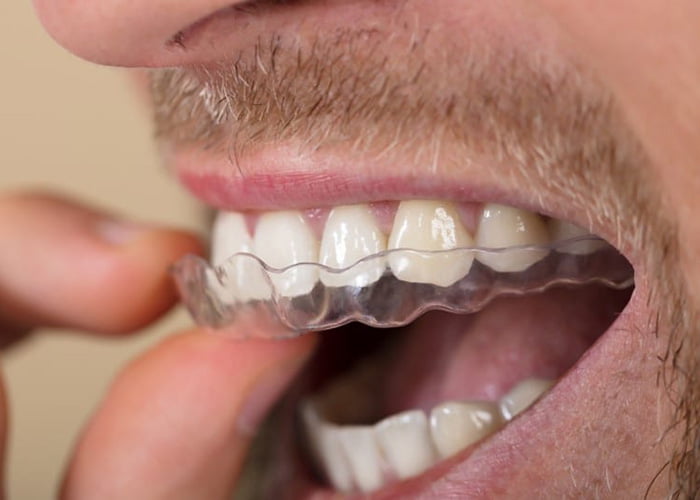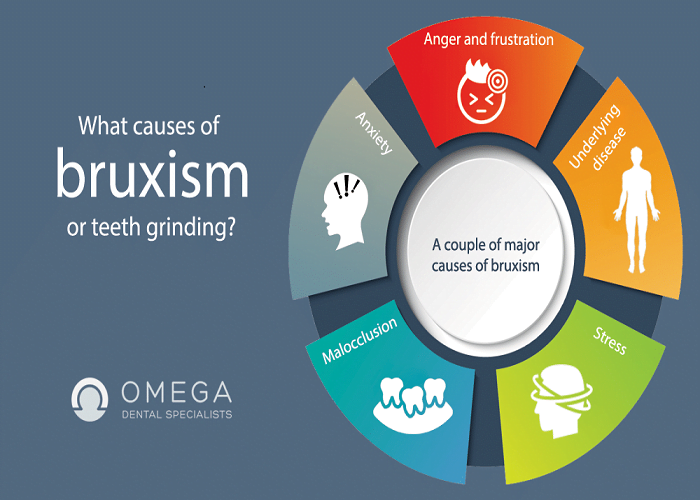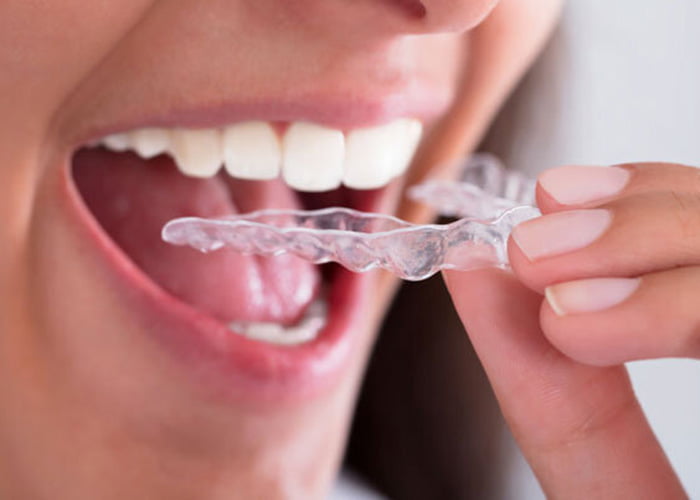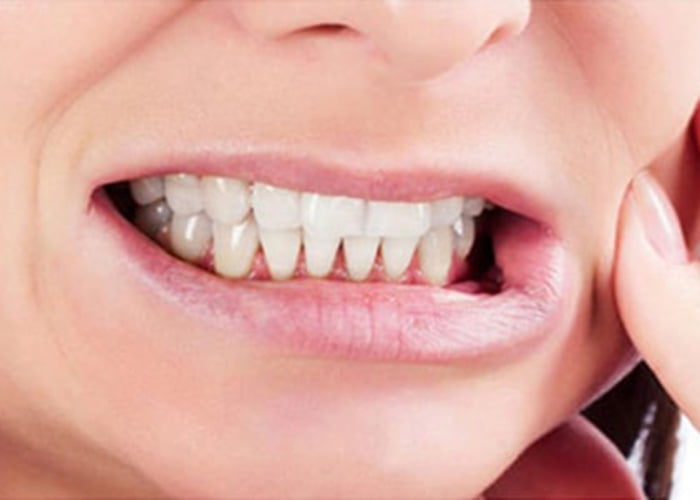What Is Bruxism?
Bruxism or teeth grinding is frequent and often occurs as you sleep. Although medical professionals still do not know exactly how aggresses, bruxism are usually related to stress, certain habits, and sleep disorders.
Bruxism can be extremely difficult to identify, especially for people who grind their teeth while resting. However, it is extremely important for you to diagnose and treat this medical condition as soon as possible, as moderate teeth grinding could result in significant health issues for your oral health.

What Are Some Common Signs of Bruxism?
If you suffer from bruxism, you may not know it unless your sleep partner hears your grinding teeth and tells you about it. However, most people with bruxism discover some of its symptoms through plain observation.
Look for and discuss some of the following symptoms of bruxism with your dentist:
- Throbbing headache that starts in your ears when you wake up
- Disrupted sleep
- Earaches
- Sore, tight, or locked jaw
- Toothache and sensitivity
- Wear on teeth
- Loose teeth
- Damage from chewing the inside of your cheek
- Pain in your neck, face, or ear
- Popping or clicking in the TMJ (temporomandibular joint)
What Causes Bruxism?
A number of factors may lead to bruxism, including lifestyle habits, such as drinking alcohol, smoking cigarettes, and using recreational drugs. People who drink alcohol and use tobacco grind their teeth twice as much as those who do not.
- Sleep disorders
- Stress and anxiety
- Medications

What Are The Types of Bruxism?
Bruxism can be triggered when you wake up or when you fall asleep. The grinding action is the same, but waking up and falling asleep bruxism are considered two different conditions:
- Awake bruxism: You clench your jaw and grind your teeth during the day with this condition. It’s usually tied to emotional issues. Feeling anxious, stressed, or angry can cause teeth grinding. Still, it can occur for other reasons, like focusing on your work. Awake bruxism tends to occur on your own and doesn’t require treatment, as it’s more noticeable and you can more easily stop. Stress management can help you remember methods and improve memory to enhance stress reduction..
- Sleep bruxism: While asleep, you grind your teeth with this form, which may cause damage to your teeth. You do not seek treatment because you’re unaware of the behavior. Another challenge with sleep bruxism is the fact that people don’t know how strong they are clenching/grinding their jaw and teeth. They can apply up to 250 pounds of force, which causes jaw pain and serious damage to your teeth. Clenching can also lead to headaches.
Can Bruxism Harm Your Oral Health?
Severe bruxism can damage your teeth and the surrounding bone and tissue structures. You should schedule an appointment with your dentist as soon as you notice symptoms. The sooner you begin treating your bruxism, the greater your chances will be at avoiding severe oral complications.
Bruxism can lead to a wide range of dental health issues, including:
- Tooth damage: Teeth may wear out in areas with frequent biting, become chipped, loosened, cracked, or broken, making them more susceptible to tooth decay and gum disease.
- Sensitivity and gum infection: You may experience gum disease if you gnash your teeth on a regular basis. Your gums can pull away from your teeth, possibly increasing your risk of gum disease and tooth loss.
- TMJ problems: Clenching your teeth and jaw puts pressure on the joints that connect your jawbone to your skull (temporomandibular joint disorder – TMD). In some cases, the jaw can become dislocated, which requires surgery to correct.
Can Children Have Bruxism?
Like adults, children can brux during sleep. Parents may hear their children in their sleep grinding their teeth. But bruxism in kids may not lead to long-term damage. Children’s teeth and jaws change quickly, and they outgrow bruxism by the time they lose their baby teeth.
Can a Nightguard Help if You Have Bruxism?
If your dentist diagnoses you with bruxism, they may suggest you wear a mouthguard. Your dentist can create a customized nightguard that you can wear to help reduce teeth grinding while you rest. The mouthguard serves as a protective barrier between your teeth and can absorb the force of clenching and grinding.

What Are Some Alternative Treatment Strategies?
While a night guard is a common remedy for bruxism, it isn’t the only one. There are other therapies that could also be suitable instead of or together with a night guard, such as the following:
- Stress management: counseling, yoga, meditation, and making time for self-care
- Lifestyle modifications: avoid caffeine, alcohol, and smoking
- Oral exercises: practice the best position for your tongue, teeth, and lips
- – Medications: muscle relaxant (for a short period of time) or anti-anxiety medication
Don’t Wait to Treat Bruxism
There are a number of effective treatment strategies to address bruxism, but if not addressed promptly, the condition can progress to serious dental health issues. By visiting your dentist for routine checkups and keeping yourself up to date on potential symptoms, you can spot and treat bruxism before it causes lasting damage.
If you think you may be grinding your teeth, don’t wait to reach out to your dentist.
See Dentist For Life
Looking for an experienced and trusted dentist in Marysville, Ohio? Look no further than Dentist For Life! We provide comprehensive dental care for patients of all ages. We take a wide variety of insurance plans and are currently accepting new patients. You can reach us at (937) 707-1111 or schedule your appointment online here.



